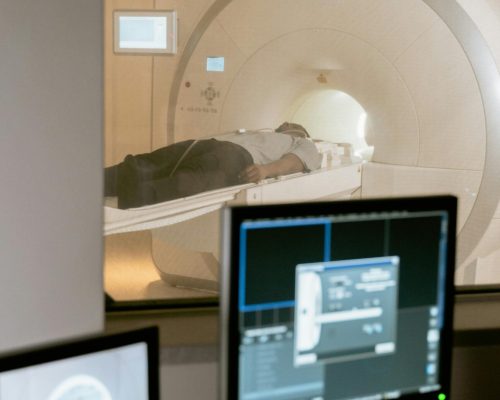Magnetic Resonance Imaging (MRI) is one of the most common diagnostic tools used in modern medicine. Sometimes, doctors recommend an MRI with contrast to get a clearer and more detailed look at what’s happening inside your body. But many patients often wonder — does MRI with contrast make you tired?
This is a valid question, especially if you have a busy day ahead or are worried about side effects. In this article, we will explain everything you need to know about MRI contrast, why fatigue might occur, what to expect before and after the scan, and when you should seek medical help.
OVERVIEW
-
Main Question: Does MRI with contrast cause tiredness?
-
Short Answer: Fatigue after MRI with contrast is uncommon but can happen due to the contrast dye, anxiety, or lying still for a long time.
-
Key Points:
-
MRI contrast is generally safe and well-tolerated.
-
Mild tiredness can occur due to stress, fasting, or staying still.
-
Rare allergic reactions may cause weakness, dizziness, or other symptoms.
-
Staying hydrated can help flush out the contrast faster.
-
Contact a doctor if fatigue is severe or lasts more than 24 hours.
-
What is an MRI with Contrast?
An MRI uses strong magnetic fields and radio waves to create detailed images of organs, tissues, and blood vessels. Sometimes, doctors need an even clearer view — that’s where contrast agents come in.
Contrast agents are usually gadolinium-based substances injected into your vein during the MRI. These agents help highlight specific areas in the body, making it easier to detect issues such as:
-
Tumors
-
Inflammation
-
Blood vessel abnormalities
-
Infections
-
Neurological disorders
Does MRI with Contrast Make You Tired?
The short answer is not usually, but some people do report feeling tired afterward. There are several possible reasons for this:
1. The Contrast Dye
Most people tolerate gadolinium-based contrast agents very well. However, in rare cases, the body might react with:
-
Mild nausea
-
Headache
-
Temporary fatigue
2. Anxiety and Stress
Many patients feel anxious before or during the MRI due to the enclosed space or loud noises. This emotional stress can cause post-procedure exhaustion.
3. Staying Still for Long Periods
MRI scans can take 30–60 minutes, requiring you to lie completely still. This physical stillness can make you feel stiff and fatigued afterward.
4. Fasting or Medication
If you were asked not to eat or drink before the scan, low blood sugar or dehydration could contribute to tiredness.
Is Fatigue After MRI with Contrast Dangerous?
In most cases, mild tiredness after an MRI is not dangerous. It usually resolves within a few hours after resting and hydrating. However, seek medical attention if you notice:
-
Persistent weakness or dizziness
-
Shortness of breath
-
Skin rash or itching
-
Swelling around the face or throat
-
Severe nausea or vomiting
These could be signs of an allergic reaction or a rare side effect like Nephrogenic Systemic Fibrosis (NSF) — more common in people with kidney disease.
Tips to Minimize Fatigue After MRI with Contrast
Here are some practical steps to help you feel better after your scan:
-
Stay Hydrated: Drink plenty of water to flush out the contrast dye faster.
-
Eat a Nutritious Meal: Replenish your energy if you were fasting before the MRI.
-
Rest for a Few Hours: Allow your body to relax after the procedure.
-
Avoid Strenuous Activity Immediately: Give your body some time to recover.
-
Inform Your Doctor of Any Reaction: Especially if fatigue is severe or persistent.
When to See a Doctor
Contact a healthcare professional or visit ER OF MESQUITE immediately if you experience:
-
Severe fatigue lasting more than 24 hours
-
Difficulty breathing
-
Hives or swelling
-
Persistent nausea, vomiting, or dizziness
Prompt medical care ensures any serious reaction is managed quickly.
Why Choose ER OF MESQUITE for MRI Emergencies
At ER OF MESQUITE, we provide expert emergency care for patients who experience adverse reactions after an MRI or other medical procedures. Our facility offers:
-
24/7 emergency services
-
Quick diagnostic testing
-
Skilled physicians and nurses
-
Compassionate care for patients of all ages
Your safety and peace of mind are our top priorities.
FAQs About MRI with Contrast and Fatigue
1. How long does contrast dye stay in your system?
For most healthy people, it is cleared within 24 hours through urine.
2. Can MRI contrast cause drowsiness?
No, contrast dye itself does not directly cause drowsiness. Any tiredness is usually due to the overall experience.
3. Can I drive after an MRI with contrast?
Yes, most people can safely drive after their MRI unless they feel dizzy or unwell.
4. Should I drink water after MRI with contrast?
Yes! Drinking water helps flush out the contrast dye more quickly.
5. Is fatigue more common in people with kidney issues?
Yes, because kidney function affects how quickly contrast is removed from your body. Always tell your doctor if you have kidney problems.
Conclusion
Feeling slightly tired after an MRI with contrast is not unusual, but it’s generally not a cause for concern. The contrast dye itself is safe for most people and rarely causes side effects. Anxiety, fasting, or lying still for long periods are more likely reasons for post-MRI fatigue.
If you experience severe or prolonged symptoms, don’t ignore them — visit ER OF MESQUITE for prompt care. Our team is always ready to provide the right treatment to keep you safe and healthy.
 :
https://webyourself.eu/blogs/1556943/Top-10-Things-to-Know-About-Emergency-Rooms-Near-Me
:
https://webyourself.eu/blogs/1556943/Top-10-Things-to-Know-About-Emergency-Rooms-Near-Me












